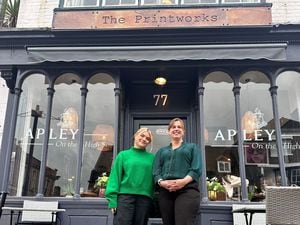Fraud epidemic costs UK £110bn a year
The UK economy could be boosted by £44 billion annually if organisations stepped up efforts to tackle fraud and error.

That’s just one of the findings in the latest research from national audit, tax and advisory firm Crowe Clark Whitehill, together with the University of Portsmouth’s Centre for Counter Fraud Studies.
Guy Morgan, corporate business partner in Crowe’s Midlands office in Oldbury, said: “Businesses in the West Midlands need to increase their vigilance in relation to fraud.
“Too many businesses are still taking a reactive rather than proactive approach to tackling this. The cost of fraud can be significant, so reducing this cost not only boosts profits and competitiveness but can reduce the amount of extra funding needed for growth.”
The report, The Financial Cost of Fraud 2018, reveals a national fraud pandemic totalling £110bn a year – almost seven per cent of total expenditure – but says that big savings are possible.
Globally, fraud is costing £3.24 trillion each year, a sum equal to the combined GDP of the UK and Italy, or enough to build more than 3,000 Wembley Stadiums.
The report, which is the only one of its kind, draws on 20 years of extensive global research from 40 sectors, where the total cost of fraud has been accurately measured across expenditure totalling £15.6 trillion.
Since 2008, there has been a startling 49.5 per cent increase in average losses with businesses losing an average of 6.8 per cent of total expenditure. Driven by technological advances and increasing digitisation, businesses now face a threat which is growing in scale and mutating in complexity.
Fraud is the last great unreduced business cost. Included in the report are examples where fraud has been accurately measured, managed and losses minimised, including a major mining company which reduced losses due to procurement fraud by more than 51 per cent within a two-year period, equating to US $20 million at a time when commodity prices were falling.
Jim Gee, head of forensic and counter fraud at Crowe Clark Whitehill, said: “The threat of fraud is becoming increasingly like a clinical virus – it is ever-present and ever-evolving.
“The bad news is that digitalisation of information storage, and process complexity, coupled with the pace of business change, have created an environment where fraud has thrived, grown and continued to mutate.
“The better news is that there are examples where organisations have measured and minimised fraud like any other business cost and greatly strengthened their finances.”





